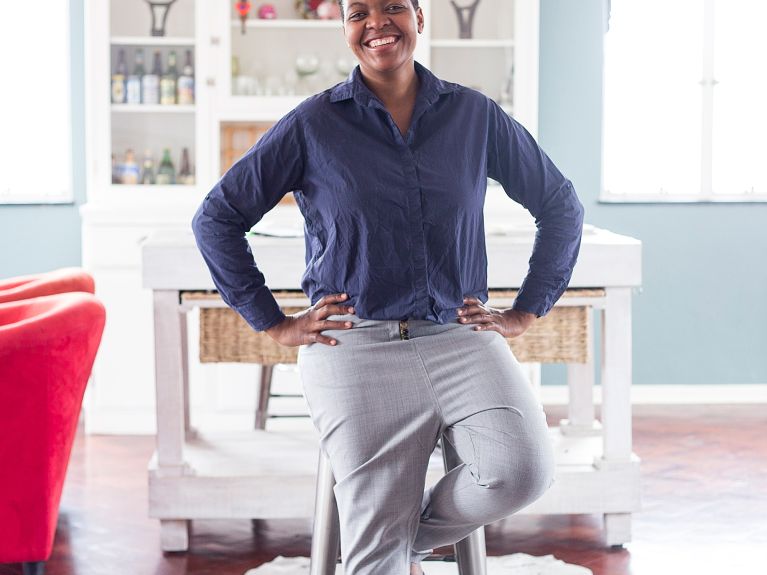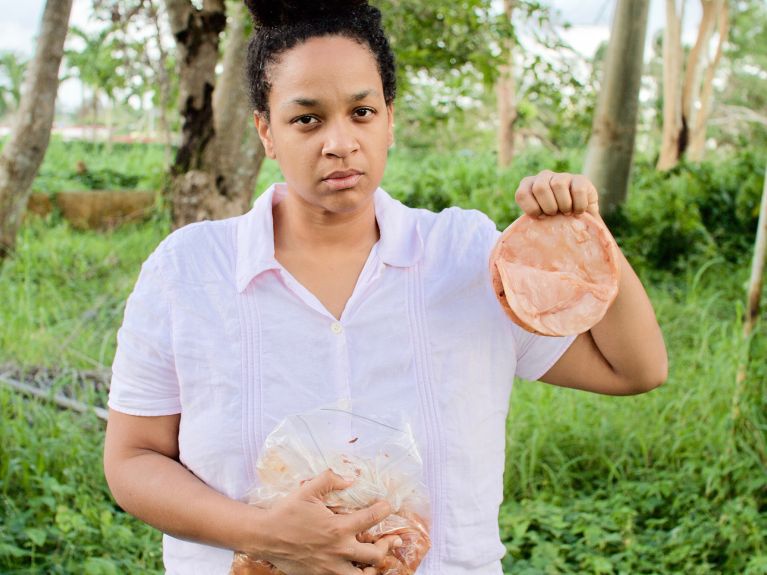Heroes not required
At the 10th Berlin Biennale, South African curator Gabi Ngcobo plans to tell new stories. What does that mean?

Mrs. Ngcobo, the 10th Berlin Biennale has taken as its motto “We don’t need another hero”. What does this refer to?
Heroes tend to represent power and supernatural strengths. But what is the use of power if we cannot utilize it for our self-empowerment? The abuse of power by statesmen or rulers, for example, becomes toxic and highly destructive if it isn't used for the larger good as history has taught us. The song by Tina Turner was released in the 1980's, a period of great political turmoil and change. Here in Europe it meant the fall of the Iron Curtain which of course had rippling effects globally. Today, in 2018 we are once again facing many challenges, related to migration, nationalism and border control. The Biennale shows artists whose work deals with these concerns on one or the other level.

The topics you seek to address are power relations, historical narratives, the unravelling of rulership structures, decolonisation. How political will the Berlin Biennale be?
This year's Berlin Biennale takes Germany's capital as vantage point to explore the manifold narratives all of us are embedded in. We weren't interested in creating an exhibition that follows a single story or a monolithic thread. Living through these reactionary times, one strategy to counter the abuse of power is to display the many subjectivities that surround us. How can we disrupt the idea of the one-dimensional story? We invited artists that tackle such questions from very personal and familial positions. I am thinking of the Puerto Rican artist duo "Las Nietas de Nonó”. The two sisters interrogate how state oppression can have detrimental effects on the most intimate and private areas of family lives for example. I am interested in artists that have the ability to depict such dynamics.
Berlin is certainly one of the most cosmopolitan centres at present
You have curated exhibitions at a variety of venues. What is special about the Berlin venue?
I think Berlin is a fascinating city and has a lot to offer, historically, geographically and culturally. It surely belongs to one of the cosmopolitan centers in this moment. We chose, like other Biennale editions before, to include different venues throughout the city such as the Akademie der Künste or Z/KU - Center for Art and Urbanistics to expand the conversation from Kunst-Werke, the main hub, and include as many positions as possible that help generate the discourse on art. Pairing very established institutions, representing long historical legacies with newly founded artist-run organizations complicates the dominant or Mainstream perspective on art in a productive way. To allow artists more participation when it comes to defining the canon is important. Artists produce knowledge and I think this should be credited properly. The selection of this year's venues hopefully reflects this.
Which programme element or artist are you especially looking forward to seeing?
I am excited for our public program, possibilities for the general public to actively participate and experience art. Generally, I hope we will impact the conversation and discourse on art and question who can participate in this dialogue and who not. I want the exhibition to be accessible to as many communities as possible. I think that the selection of artists mirrors our curatorial program to not single out individual heroes or champions but rather create a multivocal narrative out of which new, previously untold stories emerge.
Interview: Martin Orth
